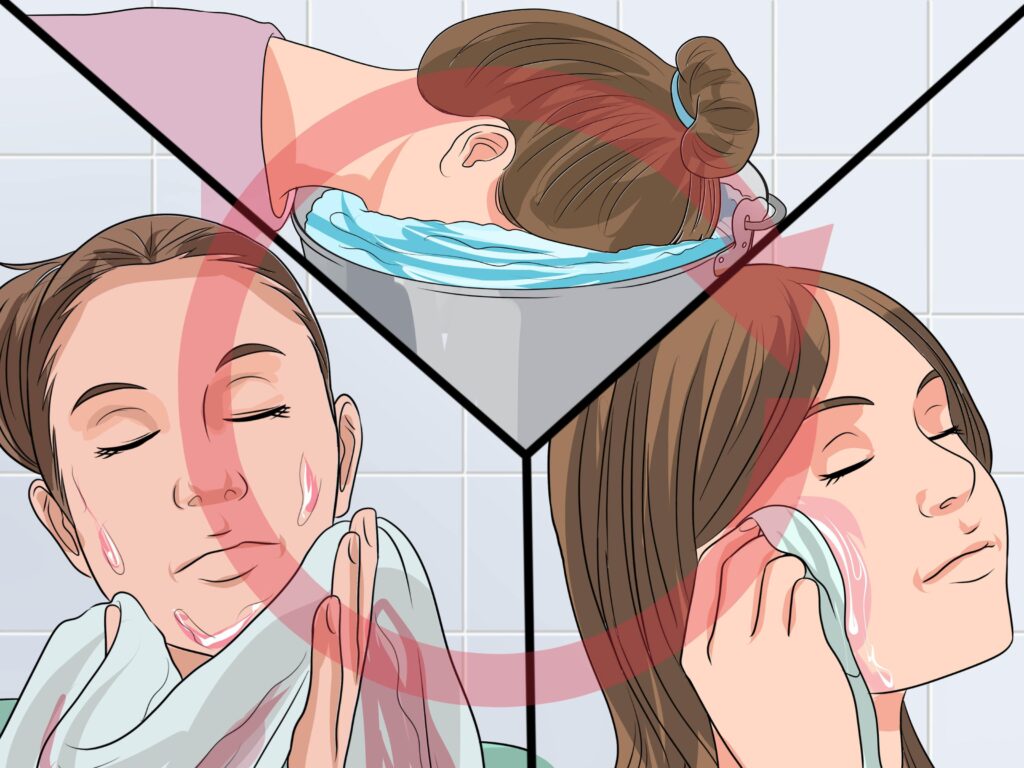Table of Contents
- Understanding the Immediate Effects of Pepper Spray Exposure
- Essential First Aid Steps to Soothe and Protect the Victim
- When to Seek Professional Medical Attention After Pepper Spray Exposure
- Preventive Measures and Safety Tips for Handling Pepper Spray Incidents
- Final Thoughts
Understanding the Immediate Effects of Pepper Spray Exposure
Pepper spray causes an intense, immediate reaction primarily due to its active ingredient, capsaicin, which irritates mucous membranes and sensory nerves. Upon exposure, individuals typically experience severe burning sensations in the eyes, skin, and respiratory tract. This is accompanied by uncontrollable tearing, coughing, difficulty breathing, and temporary blindness as the eyes close involuntarily to shield themselves from the irritant. The body’s natural defense mechanisms amplify these symptoms, making the victim’s distress unmistakable and immediate.
Understanding these symptoms is crucial when assisting someone exposed to pepper spray. The victim’s pain and discomfort can escalate quickly, often leading to panic or disorientation. It’s important to remember that these effects, while intense, are typically temporary. Immediate support involves taking calm, deliberate actions such as:
- Moving the person to fresh air to ease breathing
- Advising them not to rub their eyes to avoid further irritation
- Helping them rinse their eyes with clean, cool water or saline solution
- Providing reassurance to help alleviate panic and promote controlled breathing
Essential First Aid Steps to Soothe and Protect the Victim
When someone is exposed to pepper spray, the immediate priority is to relieve the intense burning sensation and prevent further injury. Begin by calmly moving the victim to a well-ventilated area to avoid inhaling more irritants. Encourage them to avoid rubbing or touching their face, as this can exacerbate irritation. Gently flushing the affected eyes and skin with cool, clean water for at least 10-15 minutes can significantly reduce discomfort. Use a steady, gentle stream rather than a harsh spray to avoid causing additional pain. If water is unavailable, saline solution or any mild, sterile eye wash can serve as a temporary alternative.
After flushing, help the victim wipe away any remaining residue with a clean, soft cloth, ensuring not to spread the irritant further. Reassure them to stay calm and breathe slowly to manage any coughing or shortness of breath. Avoid using creams, oils, or lotions on the affected areas, as these can trap the irritant and worsen symptoms. If symptoms persist or the person experiences severe reactions such as difficulty breathing, chest pain, or intense swelling, seek professional medical assistance immediately. Remember, timely and careful first aid is crucial to minimizing complications and promoting a quicker recovery.
When to Seek Professional Medical Attention After Pepper Spray Exposure
While most symptoms from pepper spray exposure tend to diminish within 30 to 45 minutes, there are key signs indicating the need for immediate medical evaluation. If the individual experiences difficulty breathing, persistent or worsening chest pain, or the onset of severe allergic reactions such as swelling around the face or throat, emergency services should be contacted without delay. Additionally, if the person has pre-existing respiratory conditions like asthma or chronic obstructive pulmonary disease (COPD), their risk of complications increases and professional oversight becomes crucial.
Other red flags requiring urgent medical attention include:
- Prolonged intense eye pain or vision changes that do not improve after flushing with water
- Severe skin irritation or chemical burns persisting beyond initial first aid efforts
- Signs of infection at sites of contact, including redness, swelling, or discharge developing over time
- Neurological symptoms such as confusion, dizziness, or loss of consciousness
In these cases, seeking care from healthcare professionals ensures proper treatment and reduces the likelihood of lasting damage or complications.
Preventive Measures and Safety Tips for Handling Pepper Spray Incidents
Immediate response is critical when someone has been exposed to pepper spray. Begin by guiding the affected individual to a well-ventilated area or fresh air to reduce further irritation from lingering particles. Encourage them to avoid rubbing their eyes or face, as this can exacerbate burning and swelling. If possible, help them rinse their eyes gently with cool, clean water or saline solution-aim to flush out the irritant without forcing their eyes open.
It’s important to avoid using oils, creams, or lotions which might trap the capsaicin on the skin, prolonging discomfort. Instead, consider the following steps to ease symptoms:
- Remove contaminated clothing carefully to prevent further spreading of the spray.
- Use a damp cloth to gently wipe affected areas without rubbing.
- Offer the person water to drink, which can soothe irritation and help with recovery.
- Avoid applying any neutralizing agents unless recommended by medical personnel.
Remember, if symptoms persist or worsen-such as difficulty breathing or severe pain-seek professional medical assistance promptly. Being calm and methodical during this process can significantly improve the comfort and safety of the exposed person.
Final Thoughts
In situations involving accidental pepper spray exposure, knowing how to respond calmly and effectively can make all the difference. By following these simple yet crucial steps-moving the person to fresh air, avoiding rubbing the affected areas, rinsing with water or saline, and seeking medical attention if symptoms persist-you can provide meaningful assistance while minimizing discomfort and potential complications. Remember, preparedness and a clear head are your best tools in any emergency. Stay informed, stay safe, and share this knowledge to help others be ready should the unexpected happen.Check Our Other Blogs
- StunGun – Your Trusted Source for Stun Guns, Laws, and Self-Defense Tips
- PepperSprayLaws – Your Trusted Resource for Pepper Spray Information
- StunGunLaws – Your Trusted Guide to Stun Gun Legality and Safety




